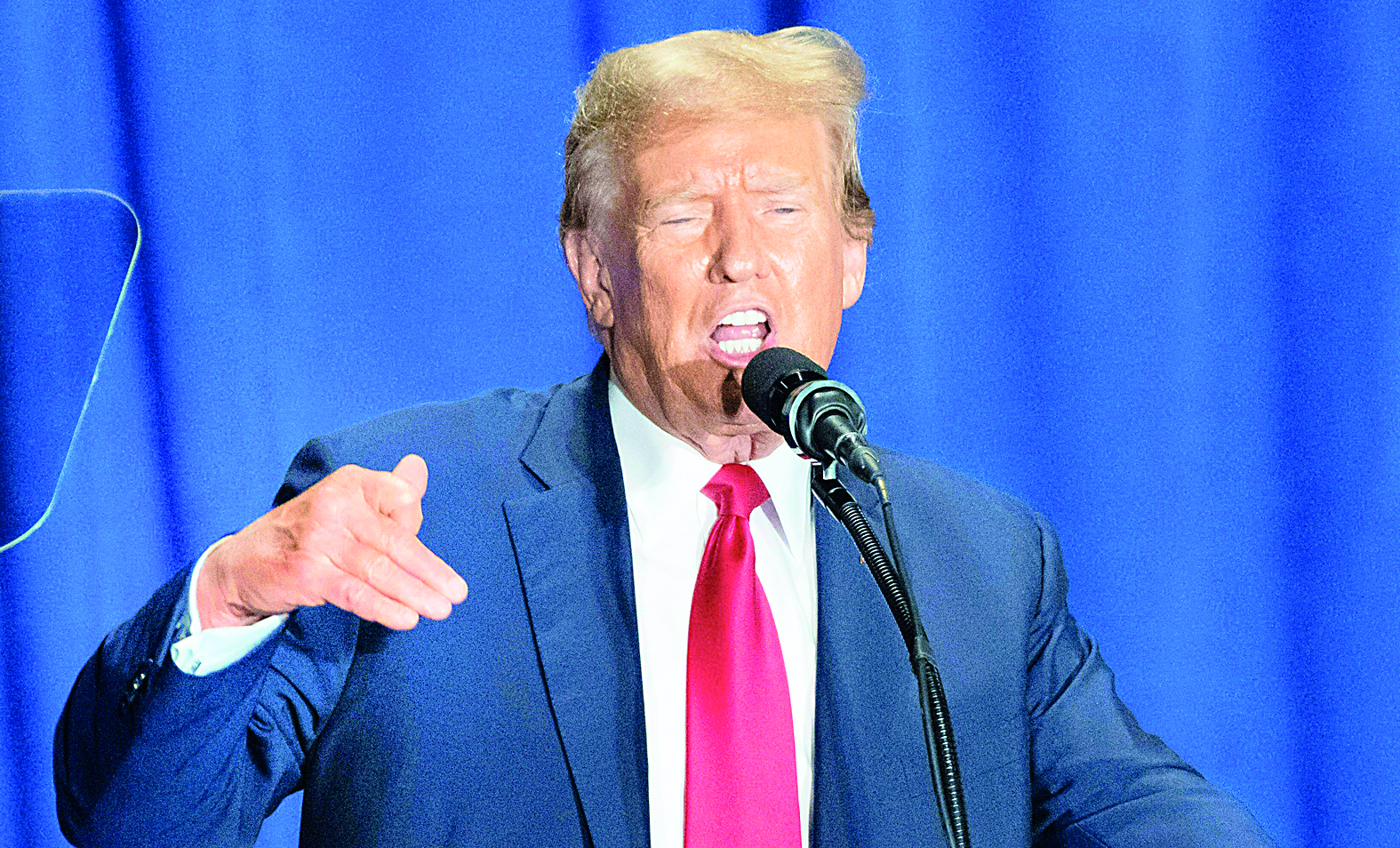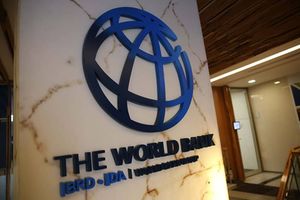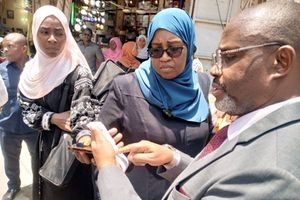Kenya polls offer key lessons to Tanzania’s electoral democracy

Supporters of William Ruto, Kenya’s President elect, celebrate in Eldoret on August 15, 2022. The head of Kenya’s election body on August 15, 2022 declared the Deputy President the winner of the country’s close-fought presidential election. PHOTO | AFP
What you need to know:
- As the country tries to draw lessons from Kenya’s electoral democracy, it would be wise to understand that Kenya, for its part, learnt the same lessons the hard way
Dar es Salaam. As Tanzania celebrates 30 years of political plurality, there are several key tenets of democracy that it can learn from Kenya’s just concluded elections.
And as the country tries to draw lessons from Kenya’s electoral democracy it would be wise to understand that Kenya, for its part, learnt those same lessons the hard way.
At one time, during the 2007 elections, the country looked into the abyss. The adage that goes; “the intelligent learns from his/her own mistakes but the wise learns from the mistakes of others’ should give Tanzania an impetus to learn.
In the August 9, 2022 elections Kenyans cast their ballots to elect Members of Count Assemblies, Members of Parliament, Senators, Governors and the President.
The results, announced on August 16, 2022, by the Independent Electoral and Boundaries Commission (IEBC) Chairman Wafula Chebukati, showed that William Ruto of the United Democratic Party (UDA) won the presidency after clinching 50.49% of the votes while his main opponent, the 77-year-old Raila Odinga of the Azimio got 48.85% of the votes.
Now elections are hotly contested and highly sensitive processes everywhere in the world. The Kenyan one was not exceptional but Kenyans, and especially the IEBC, showed a rare maturity for an independent electoral commission in Africa.
Independent electoral commission
And that is lesson number one. There is no free and fair election if the independent electoral commission is not perceived to be independent. For the past 30 years, stakeholders, including from the ruling party, CCM, have been calling for an independent electoral commission in Tanzania but to no avail. The importance of an independent commission is too plain to see.
Elections are about rights and justice. And like everything else concerning justice, it has to be perceived to be done.
The most important thing in the eyes of the public is not justice being done but the seeing, the perception that it is being done.
If a party wins squarely and fairly but in an environment where the electoral commission is not independent the perception of unfairness arising from the lack of independence of that commission can take any country to the precipice.
Fortunately, President Samia Suluhu Hassan has seen the need for an independent commission as she noted in her feature article published in news outlets on July 3, 2022 commemorating 30 years of multipartism.
“I am determined that in celebrating our years of Tanzania’s democracy, my administration will initiate reforms in areas of … electoral laws,” she wrote. “Reforms in electoral laws will create a level playing field in our politics and give the electorate an opportunity to elect the leaders they want,” she added.
Though she did not explicitly mention the words ‘independent electoral commission’ the hope is that by referring to electoral laws she alluded to the independent electoral commission.
Moreover, when she talked about creating ‘a level playing field” in politics she touched a raw nerve. Since the re-introduction of multiparty politics in 1992 the Tanzanian political playing field has never been fair. And this is the second lesson the country can draw from Kenya.
Level playing field
Despite all their shortcomings one thing Kenyans got right, since the re-introduction of multiparty elections in the 1990s, was the level playing field. Even when the electoral commission was not independent enough at least political parties and their candidates had the wide room to sell their agendas to the electorate.
In the outgoing elections it was the same. Kenya’s political and electoral laws have a wide latitude that enables political parties and politicians to canvas for members and for votes all the time, campaign without intimidation during elections, and form alliances or run as independent and so forth.
In Tanzania we must understand that providing such political and electoral freedom gives political opponents and their supporters enough room to vent their frustrations.
If people, whether a minority or not, are not given an opportunity to protest in a civil manner they might be forced to protest in an uncivil manner, which is not desirable. As they say; ‘in democracy give the minority a say and the majority a sway.’
Transparency
Kenya’s IEBC tried to make the Kenyan election tallying exercise as transparent as it could get, by giving the media unlimited access to the tallying forms and the freedom to air results.
This is what Tanzania can learn from Kenya. The media is the society’s eyes and ears. Any opaqueness and media restrictive tendencies during elections raise more questions than answers about the credibility of an election. Of course a mechanism should be created to prevent media outlets from deliberately misleading the public by announcing results that they know are wrong.
The media houses might have different tallies, something that they can correct by finding ways to work closely together in future in collaboration with political parties and the electoral commission but it does not warrant preventing them from accessing tallying forms and announcing the results. That is the highest level of transparency in any electoral process. In the US, for example, it is the media houses that “call the election” by announcing who the winner is based on their own tallies.
Court petitions
In the presidential election, Kenya’s Azimio coalition has disputed the results and plans to file court petitions, according to Kenyan media reports. This is another good point that Tanzania can borrow from Kenya. Allowing presidential results to be disputed in courts of law is a culmination of a just, free and fair election.
It was ironic that the Head of EAC observer mission, Tanzania’s former President Jakaya Kikwete, was one of the high profile individuals to urge for calm right before the elections and advised Kenyan politicians to dispute the results in court, instead of , in the streets.
But this was not highly surprising because Mr Kikwete was the recipient of the Icon of Democracy Award for 2014 for “his work to promote democracy in Tanzania.”
Now Kikwete remains highly influential in CCM politics as he sits in the powerful Advisory Council of Retired Leaders. Having witnessed the Kenyan election at close hand he could serve as a catalyst for change back home by advising CCM leaders on the importance of true democracy.
Politics is mathematics
It is not a secret that politics is a game of calculations. In seeking for top seats candidates and their political parties need to create campaign strategies that target key voting blocs (kingmakers) and leave no stone untouched in executing those strategies.
Studying how Ruto crafted and conducted his election campaigns will help Tanzania’s aspiring politicians to perform better in elections and reduce whining after elections. In countries such as the US with its swing states and electoral colleges the mathematics becomes much clearer. For countries such as Tanzania it is up to politicians to figure out the electoral calculus, devise formulas to solve such calculus and go for the votes.
Knowing is not doing
There is nothing written here that Tanzanian authorities don’t know. Political activists and opposition politicians have been calling for reforms to accommodate these tenets of democracy for years. If the powers that be had not seen the importance of instituting the reforms for that long, let them look at the northern neighbours and learn from their experience. Tanzania does not have to wait for its own experience of ‘looking into the abyss’ before it is forced to institute the necessary reforms.
And in this the authorities should not be blind-sided by the calls for a new constitution. There is no doubt that Tanzania needed a new constitution yesterday.
The new constitution would solve all or most of the democratic malaise. But the constitution making process can take years, if not decades. Should Tanzania continue having a non-independence electoral commission and an unlevel political playing field till the new constitution arrives?



